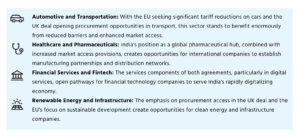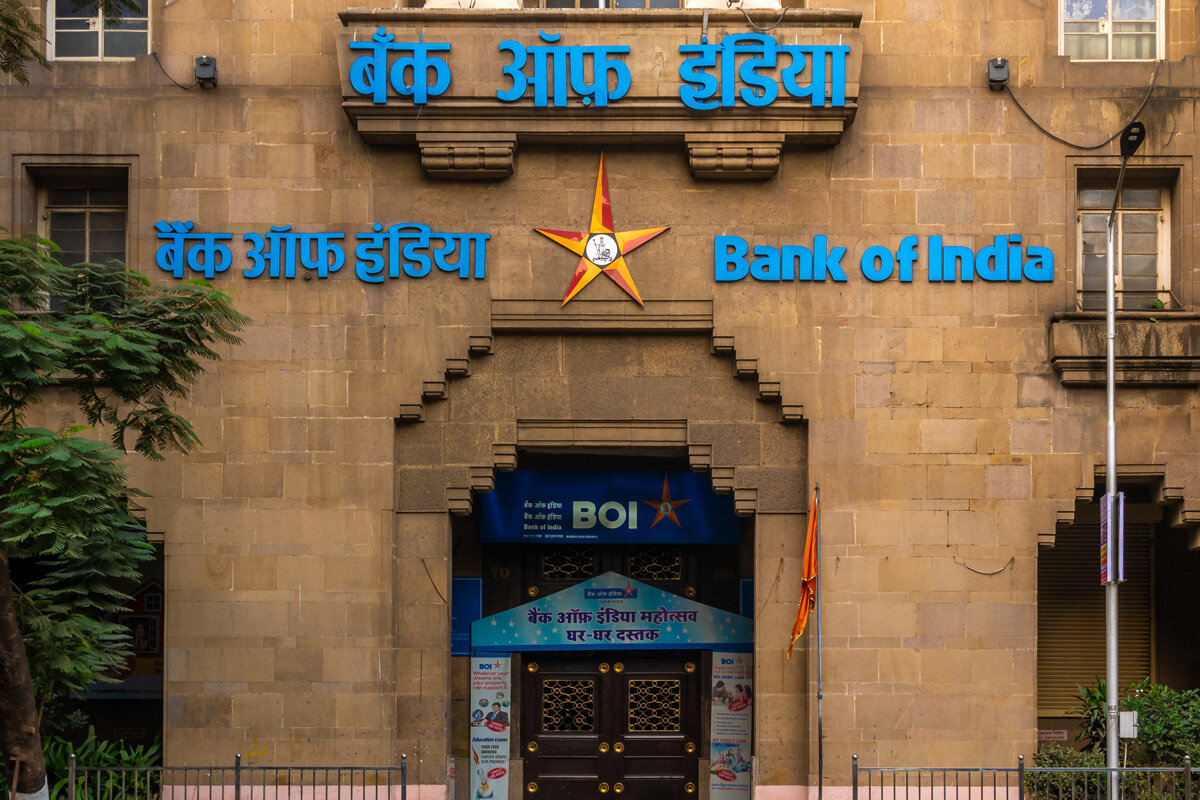Navigating India's new trade agreement wave
Opportunities for global companies in 2025
India is advancing a series of significant trade agreements that are creating new market access opportunities for international businesses. With the UK-India Free Trade Agreement finalized on May 6, 2025, and the EU-India trade negotiations gaining momentum toward a year-end conclusion, international companies are presented with interesting opportunities to capitalize on India’s rapidly expanding economy.

The UK-India deal: India’s most comprehensive trade agreement to date
The recently concluded UK-India Free Trade Agreement represents one of the most comprehensive trade deals India has ever signed, with profound implications for businesses worldwide. The agreement will cut levies on 90% of British products sold in the country, including whisky, food and electrical devices, while increasing bilateral trade by £25.5 billion, adding £4.8 billion a year to the UK economy and boosting wages by £2.2 billion every year in the long run.What makes this deal particularly significant for companies is its innovative approach to market access. The deal will give UK businesses access to India’s procurement market, which covers goods, services and construction, potentially benefiting Britain’s transport, healthcare and energy sectors. This procurement access creates a template that other nations will likely seek to replicate, suggesting that companies from other regions should prepare for similar opportunities as India expands its trade agreement portfolio.The agreement also introduces labor mobility provisions, such as a “Double Contribution Convention” that exempts Indian workers in the UK from national insurance payments for up to three years, and vice versa. This framework signals India’s commitment to facilitating cross-border business operations, which could benefit multinational companies seeking to deploy talent between their home markets and Indian operations.
EU-India negotiations: the bigger trade agreement on the horizon
While the UK deal sets important precedents, the EU-India Free Trade Agreement represents an even larger opportunity for international businesses. India and the European Union have reaffirmed their commitment to concluding an ambitious Free Trade Agreement by the end of 2025, marking the first time both sides have committed to a specific deadline after years of negotiations.The scale of this potential agreement is staggering. India is the EU’s 9th largest trading partner, accounting for 2.4% of the EU’s total trade in goods in 2024, with trade in goods between the EU and India having increased by almost 90% in the last decade. Furthermore, bilateral trade reached €124 billion worth of goods traded in 2023, with €60 billion traded in services, of which €20 billion were digital services.The EU-India negotiations are addressing critical sectors. The EU wants India to lower tariffs of more than 100% on cars, wine and whiskey, while India wants greater market access and lower tariffs for key exports, including pharmaceuticals, textiles and apparel. These developments suggest opportunities can arise for companies in automotive, luxury goods, pharmaceuticals, and manufacturing sectors.
Opportunities for companies from the Americas
For companies based in North and South America, these developments create opportunities that warrant strategic consideration:
- Supply chain and manufacturing benefits: The trade agreements are reshaping global supply chain dynamics, particularly as companies seek alternatives to China-centric manufacturing. India’s enhanced trade relationships with major Western economies make it an increasingly attractive manufacturing and sourcing destination for American companies looking to diversify their supply chains while maintaining access to developed market consumers.
- Technology and services sector growth: The emphasis on digital services in both agreements—highlighted by the €20 billion in EU-India digital services trade—signals massive opportunities for technology companies from Silicon Valley to São Paulo. As India streamlines its regulatory environment to accommodate these agreements, international tech companies will find easier pathways to establish operations, partnerships, and service delivery capabilities.
Indian sectors set to grow as a result of the trade agreements
The trade agreements with Europe and the UK aim to stimulate the following sectors:

Why you should capitalize on India now
The success of the UK-India deal and the momentum behind EU-India negotiations suggest that India is committed to expanding its trade agreement network. The timing is particularly crucial as both sides look for wins to offset the disruption of President Donald Trump’s protectionist policies. For international companies, the message is clear: India’s trade agreement wave represents an opportunity to access one of the world’s fastest-growing major economies under increasingly favorable terms. Whether through direct market entry, strategic partnerships, or supply chain optimization, the companies that act decisively will be able to capitalize on India’s emergence as a central hub in the global trade network.










